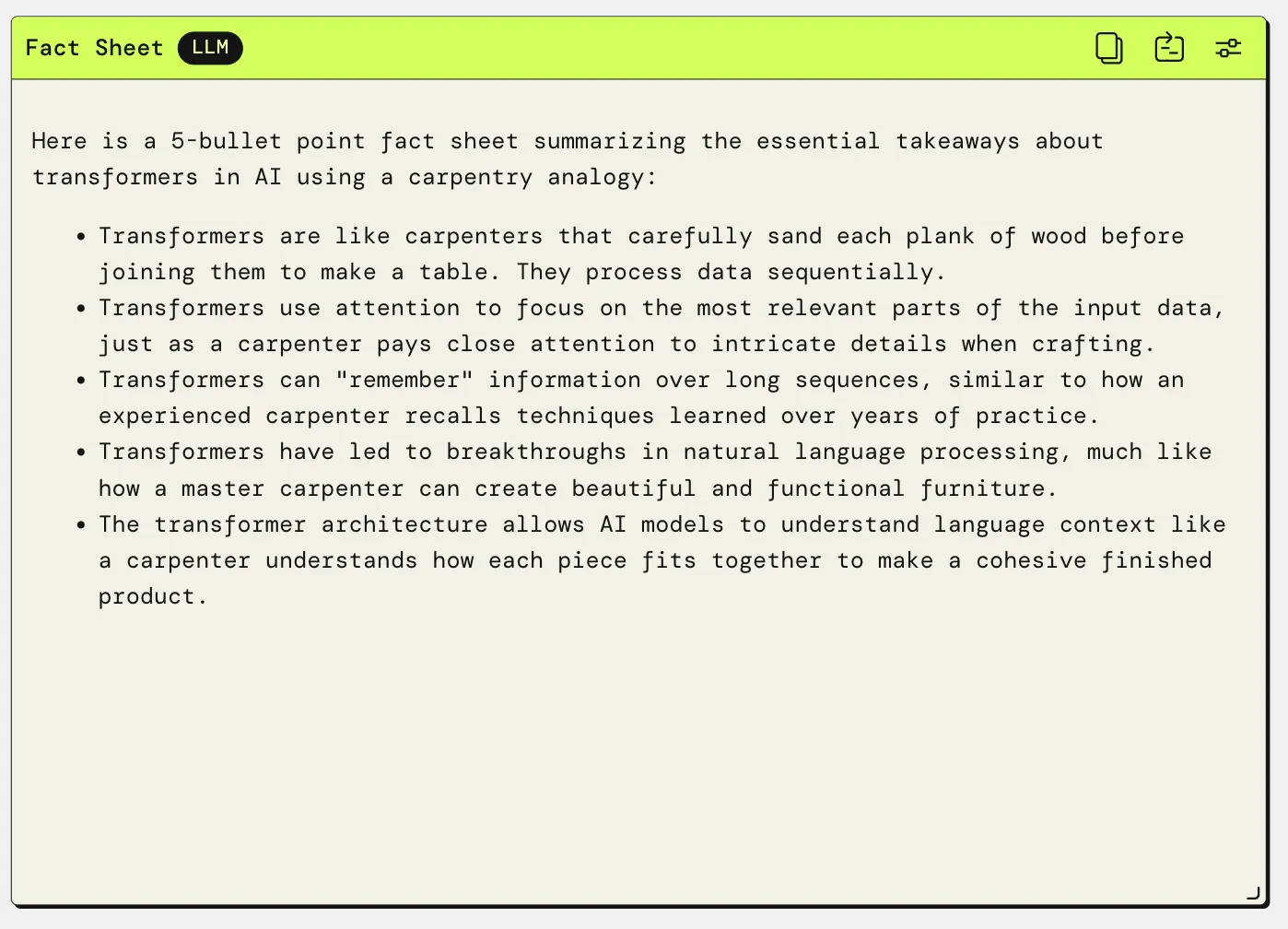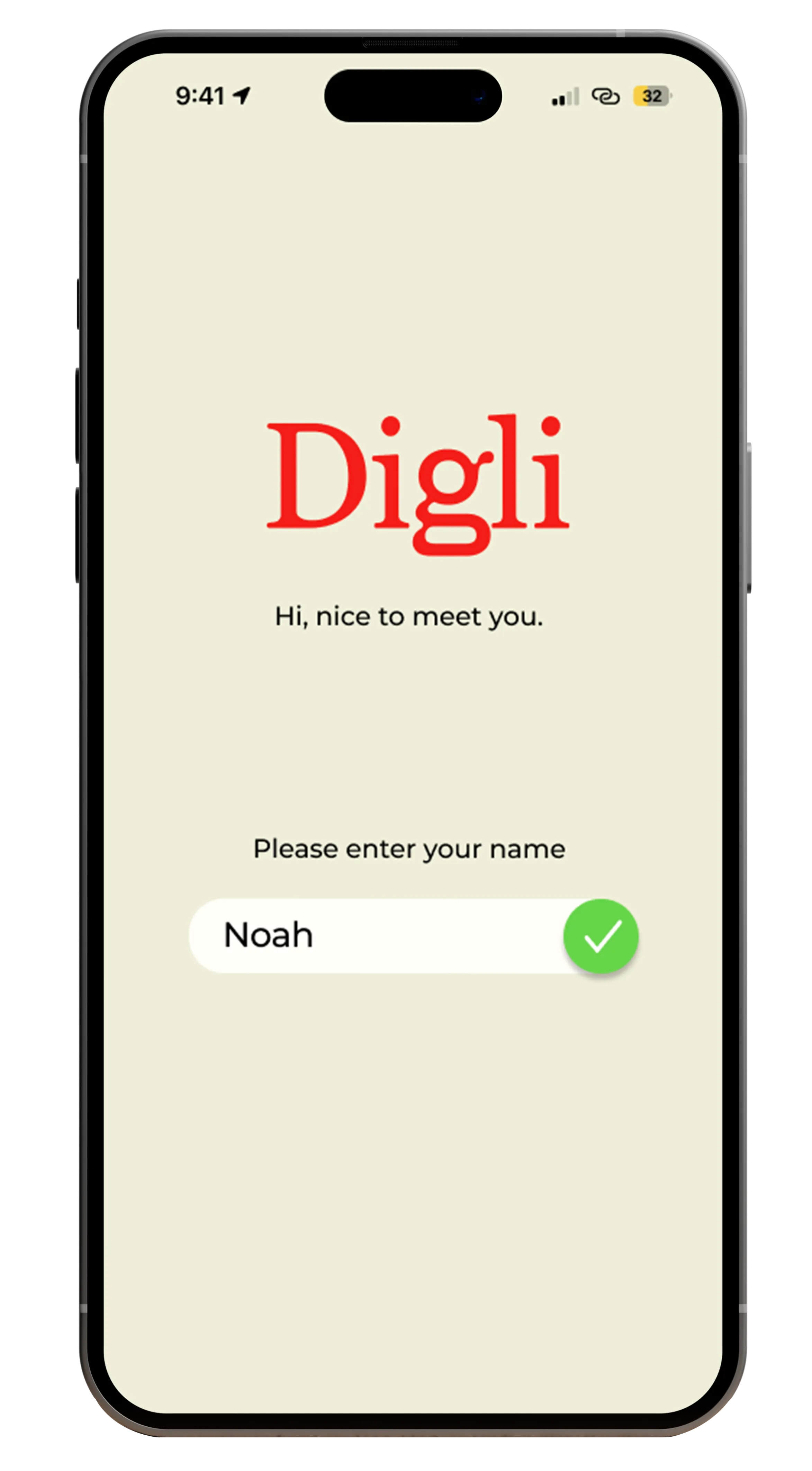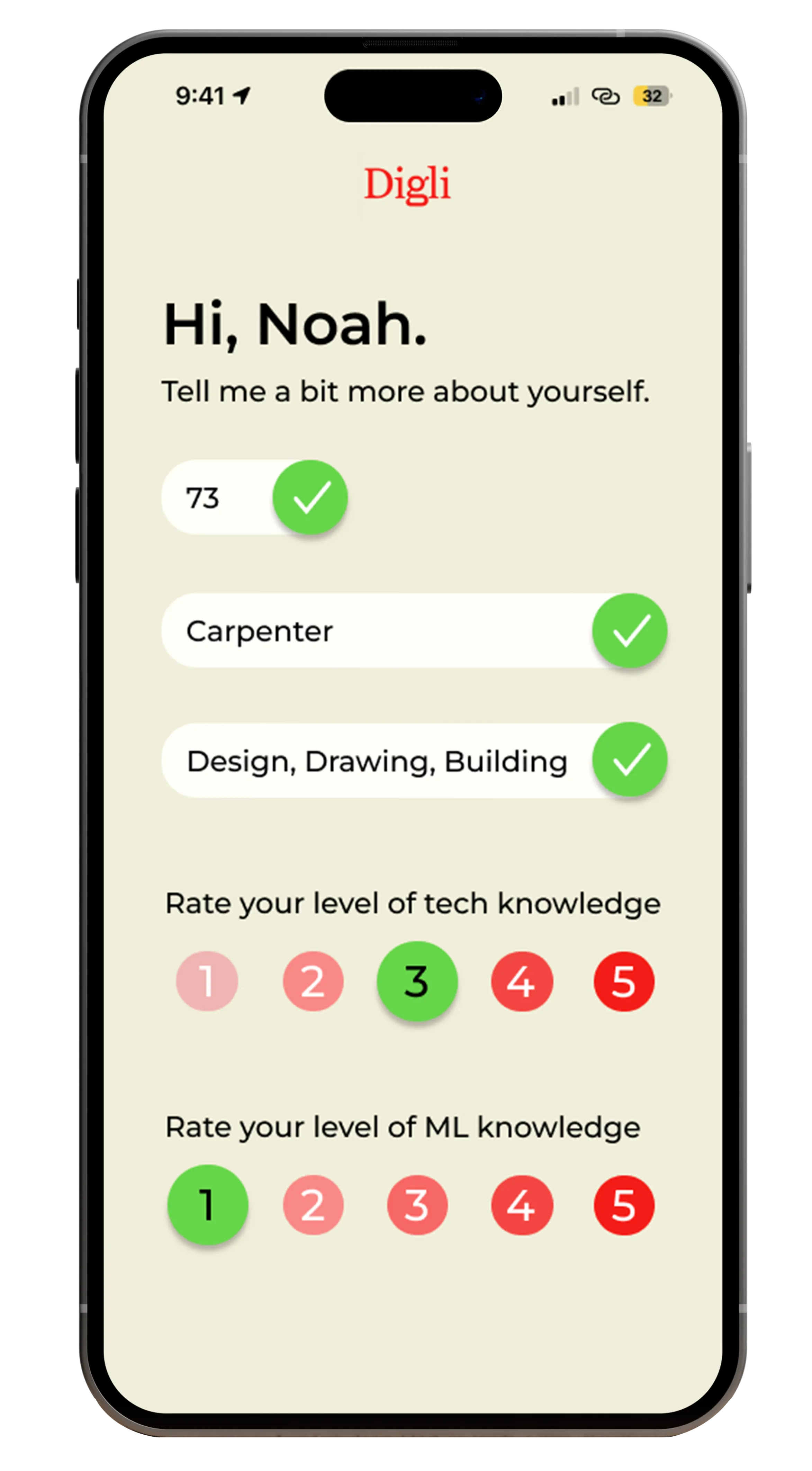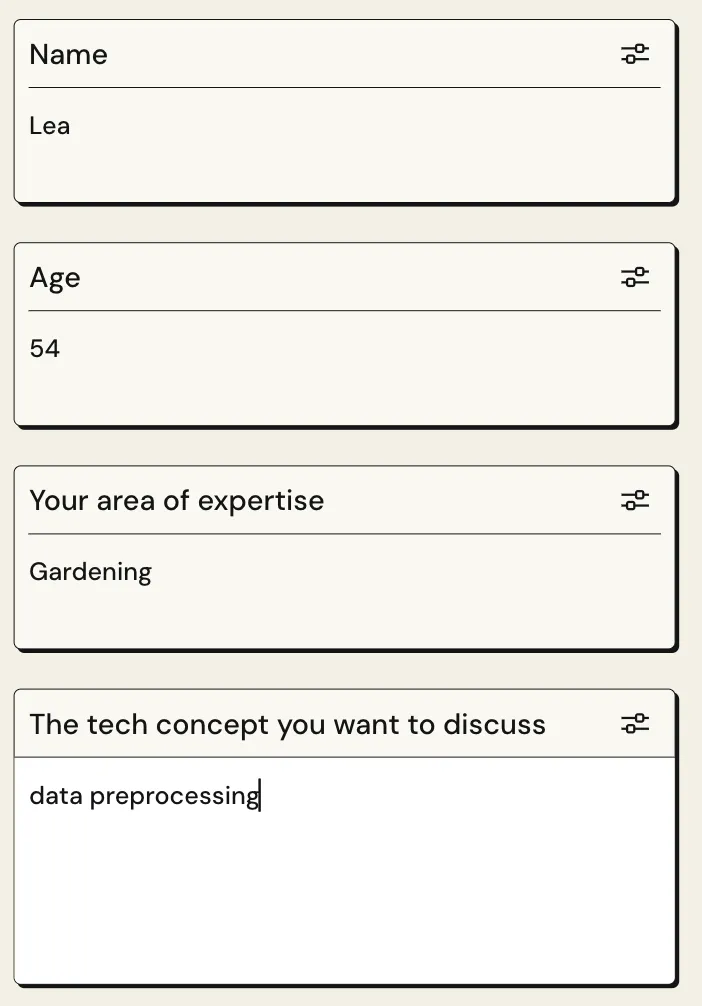Digli: Your Digital Literacy Partner
Digli is an AI Partner built on PartyRock app that makes AI and ML topics accessible to all.



- Digli's approach to personalized learning can help dissolve barriers to digital literacy, especially for older generations who might feel alienated by contemporary tech jargon.
- By valuing the user's existing knowledge and experience, Digli promotes a sense of belonging and confidence among learners. This empowerment can lead to increased participation in digital spaces, fostering a more diverse and engaged community where wisdom and experience are cherished assets in navigating the digital world.
- One of the concerns around the future of AI is that it will lead to a major imbalance of power between the producers of AI solutions and their users. Following the maxim that "knowledge is power", Digli is able to reduce this gap between AI providers and consumers.
- By increasing understanding, Digli can reduce fears around AI and new technology often prevalent in older communities.
- Digli could also equip vulnerable communities with the knowledge to make informed decisions about privacy, security, and digital consumption. It could assist older users in understanding how machine learning algorithms impact their news feeds, recommend personal security measures in the age of AI, or explain the mechanics behind voice recognition software used in smartphones and home assistants.
- Digli can increase the sociability of older generations, who will feel more concerned and able to participate in conversations. It's not just about making ML and AI accessible; it's about ensuring that no one, regardless of their digital literacy, feels left behind or underestimated. Ultimately, Digli is a testament to the power of empathy, personalization, and respect in education.
- Additional AWS Services
- Using Amazon CodeWhisperer to accelerate development of the app
- Using text-to-speech and speech-to-text to enable live conversations through the user and app with AWS Lex and AWS Polly
- Using Bedrock for text generation, text summarization and as a virtual assistant
- Improved Structure
- The app would be split into different systems instead of having all functionalities live on one page: the visitor would be prompted to enter their information when opening the app (with an option to store these if they will be a returning visitor). The text generation and chatbot functionality would then live in different parts of the app.
- A structure would be built based on Amazon Web Services to accommodate: text generation, chatbot functionality, data storage, backend, UI.
- For the purpose of the hackathon, the app's UI was mocked up in Figma to be simple and legible for the older audience it is targeting. A revised version of the app in Bedrock would be coded in React.js for the greatest flexibility and scalability.




